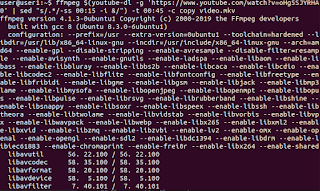Crypt module
I am using the crypt module here, which is a one-way hash function based upon a modified DES algorithm. You can easily adjust the script to crack secure hash algorithms (SHA1, SHA224, SHA256, SHA384, and SHA512 (defined in FIPS 180-2) as well as RSA’s MD5 algorithm ) by using the hashlib module.Crypt Overview
import cryptcrypt.crypt("user", "AD")
'AD5Qg2vQhsLRw'
AD is the salt, which is a random two-character string which will be used to perturb the DES algorithm in one of 4096 ways.
AD is the salt, which is a random two-character string which will be used to perturb the DES algorithm in one of 4096 ways.
The python password cracking script
import crypt
def testPass(hashpass):
salt = hashpass[0:2]
dictionary = open('dictionary.txt', 'r') #this is our dictionary file
for word in dictionary.readlines():
word = word.strip('\n')
crypto = crypt.crypt(word,salt)
if crypto == hashpass:
print "[+] Password: "+word+"\n"
return
print "[-] Password Not Found.\n"
return
def main():
hashpass = open('passwords.txt', 'r') #file with hashed password
for line in hashpass.readlines():
if ":" in line:
user = line.split(':')[0]
hashpass = line.split(':')[1].strip(' ')
print "[*] Cracking Password For: "+user
testPass(hashpass)
if __name__ == "__main__":
main()
Save the script as cracker.py. You also need to create a dictionary.txt and password.txt (with the hashed passwords) file to successfully run the program.
Create a new folder and put the three files into it, afterwards simply run
python cracker.py
You can download all of the files here: Drive



No comments:
Post a Comment